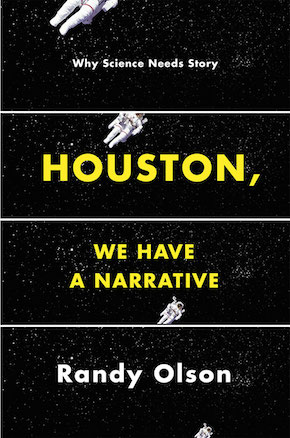The Union of Concerned Scientists on Randy Olson
Randy Olson was once a marine biologist, with one foot in academia, a screenwriting dream, and the uncanny ability to communicate complicated science via narratives that used the foundations of story to draw readers in and keep them engaged. Now one of our most revered interlocutors of how science is understood and appreciated, Olson recently published Houston, We Have a Narrative: Why Science Needs Story, which takes readers through his “And, But, Therefore” principle of writing. In addition to delivering a TED talk on the ABT method, Olson was recently the subject of a review/profile for the Union of Concerned Scientists, in a piece that details his book’s inspiration and operating themes.
From the Equation blog at the Union for Concerned Scientists:
Scientists who want to succeed with Olson’s methods will have to not only read and process what he has to say, but also commit to thinking about how to communicate their work more effectively over time. . . . This isn’t an add-on to doing good science, either, Olson argues. Scientists are born storytellers, trying to make sense of data. Olson writes that even the humble scientific abstract benefits from adhering to an ABT structure and he presents several convincing case studies to underscore this point.
He challenges readers to re-examine what a story really is in the context of science. For instance, he chronicles how Watson and Crick told a good story when they challenged the old model of what DNA looks like. He also tracks the history of IMRAD, the now-accepted standard for how one “tells a story” in the scientific literature: introduction, methods, results, and discussion. And he lays out how positive and negative results correlate to archetypal plot structures.
It’s heady stuff, for sure, but it’s also what scientists and science communicators need to hear: Effective communication and storytelling are not optional add-ons for research; they are inherent to the research process itself.
Video from Olson’s earlier appearance at TED:
To read more about Houston, We Have a Narrative, click here.
